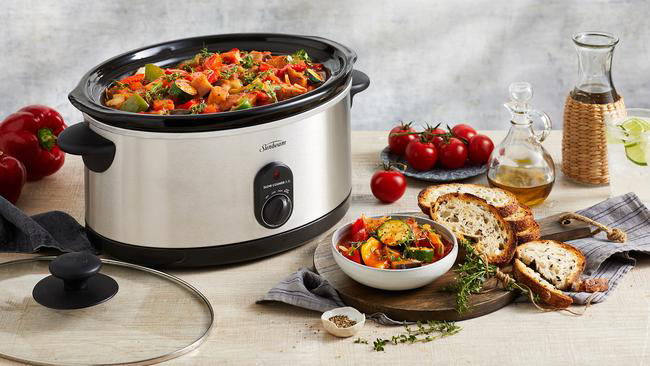Your kitchen can typically use the most energy in your home compared to other rooms of the house. Fridges and freezers, cooking appliances (kettle, oven), lighting (used for extended periods of time) and cleaning (hot water, dishwasher), can all be major sources of energy consumption. A typical fridge alone (400-500 litres) can cost about $163.35 to run each year, typically making up around 13% of your energy bill. As fridges and freezers need to run 24/7, the type, how many you own, and how well maintained they are, can make a huge difference to your energy bill.
The following 12 simple tips for reducing energy use in your kitchen can cut down your electricity consumption and save you money:
1. If you haven’t purchased new kitchen appliances in the past 10 years, consider investing in energy efficient replacements that will be cheaper to run. Use the Energy Rating Label to find the best appliances for your kitchen to save you energy and money.
2. Position your fridge in an ideal location so it can perform to the highest efficiency – placing your fridge in a hot (near a window or oven) or cramped space can make the fridge work harder as it struggles to retain a lower temperature.
3. Keep in mind the amount of food in your fridge – surprisingly, having more food in your fridge equates to more efficient cooling. When foods are cooled, they require less energy to keep cool than empty spaces in the fridge. Similarly, placing hot food in the fridge means it must work harder to maintain a cooler temperature. Ideally, let food cool before putting in the fridge.
4. Match the size of your pan or pot to the element you’re cooking on. A small pot on a large burner wastes more energy than on a smaller burner.
5. Turn off the heat early – turning off the oven or electric stove top a few minutes early will save energy while continuing to cook your food.
6. Invest in an energy-efficient slow cooker – this will save significant amounts of energy compared with using your oven or stove and make cooking easier at the end of a busy day.

7. BBQ outside during summer – cooking indoors typically raises the temperature in your kitchen, requiring the need to use the air conditioner or fans for comfort. You can therefore reduce the electricity used for cooling and cooking whilst enjoying the outdoors.
8. Reconsider your bar fridge – think carefully about if you really need to have a bar fridge. Whilst it can be handy, smaller bar or wine fridges use massive amounts of energy relative to their size. If you can’t live without it, be sure to pick an energy-efficient model.
9. Install energy-efficient LED light bulbs in your kitchen space, which can use 80% less energy than traditional globes.
10. Only boil the water you absolutely need in a kettle and switch it off at the wall when you’re finished. The more water you use, the more energy is required to bring water to the boil. Similarly, turn off the toaster and other kitchen appliances at the switch when not in use.
11. Only run the dishwasher on a full load and use the economy setting to reduce energy use. Note, however, that stacking the dishwasher to the absolute brim can prevent dishes from being cleaned properly, meaning more washing and more energy use a second time round.
